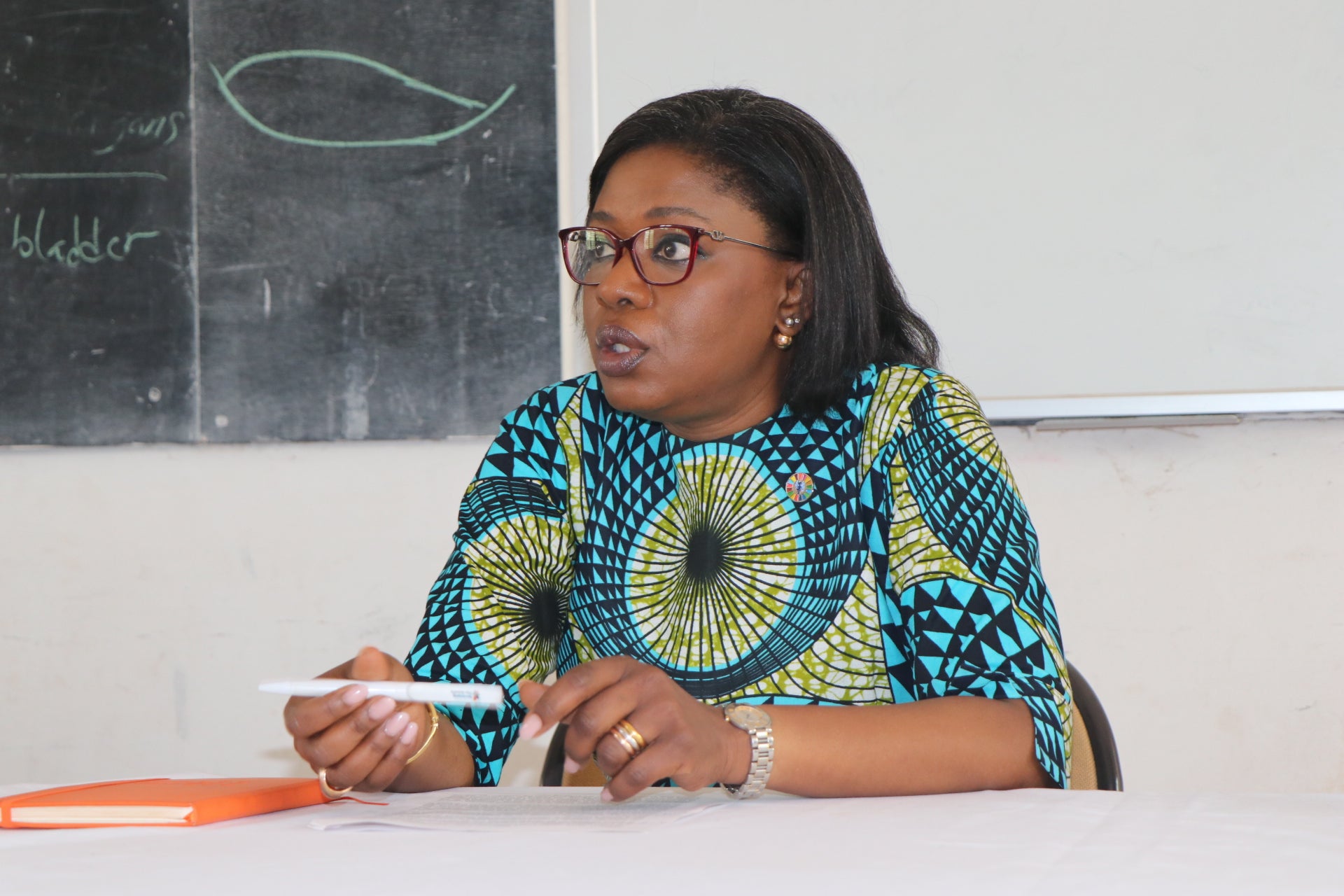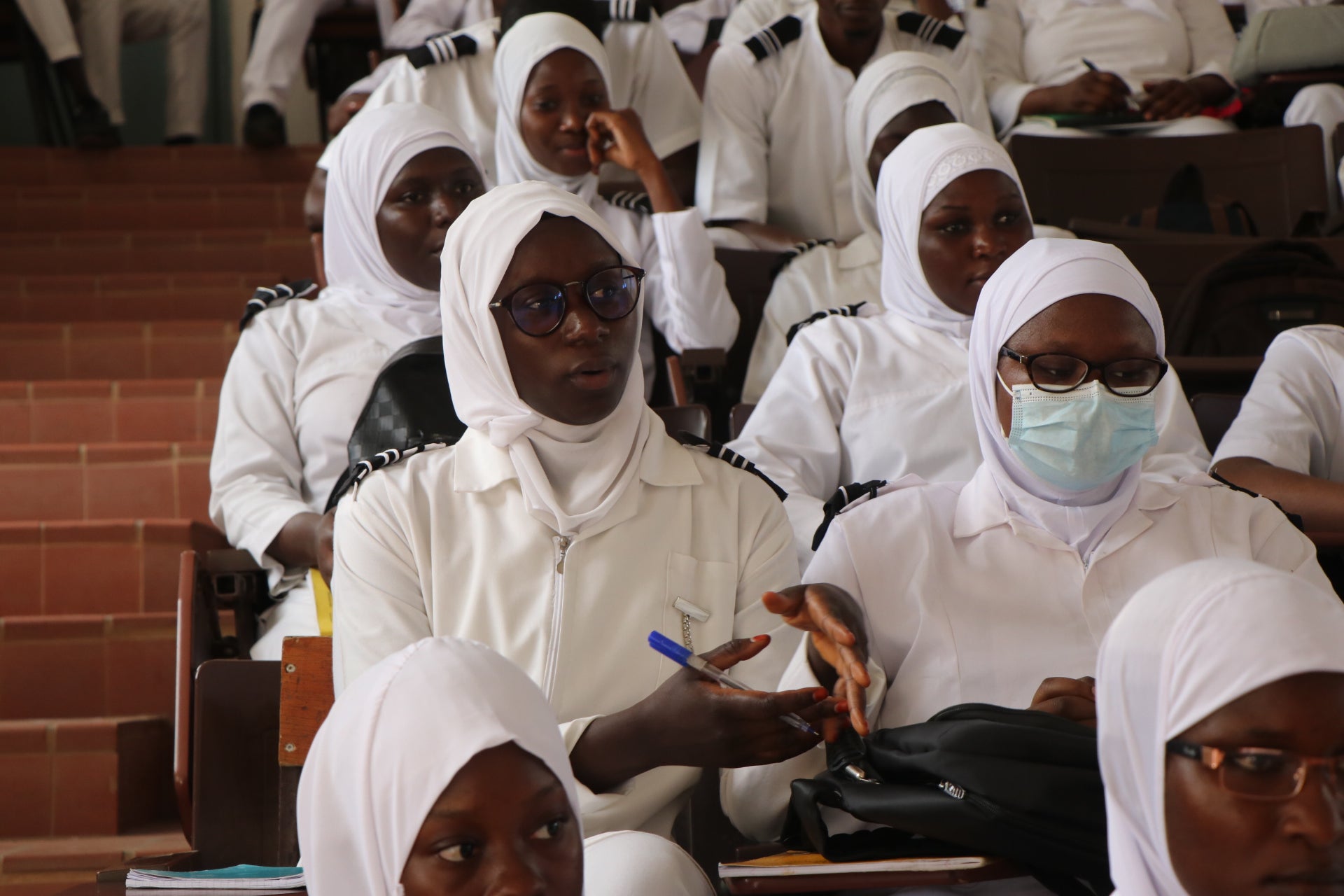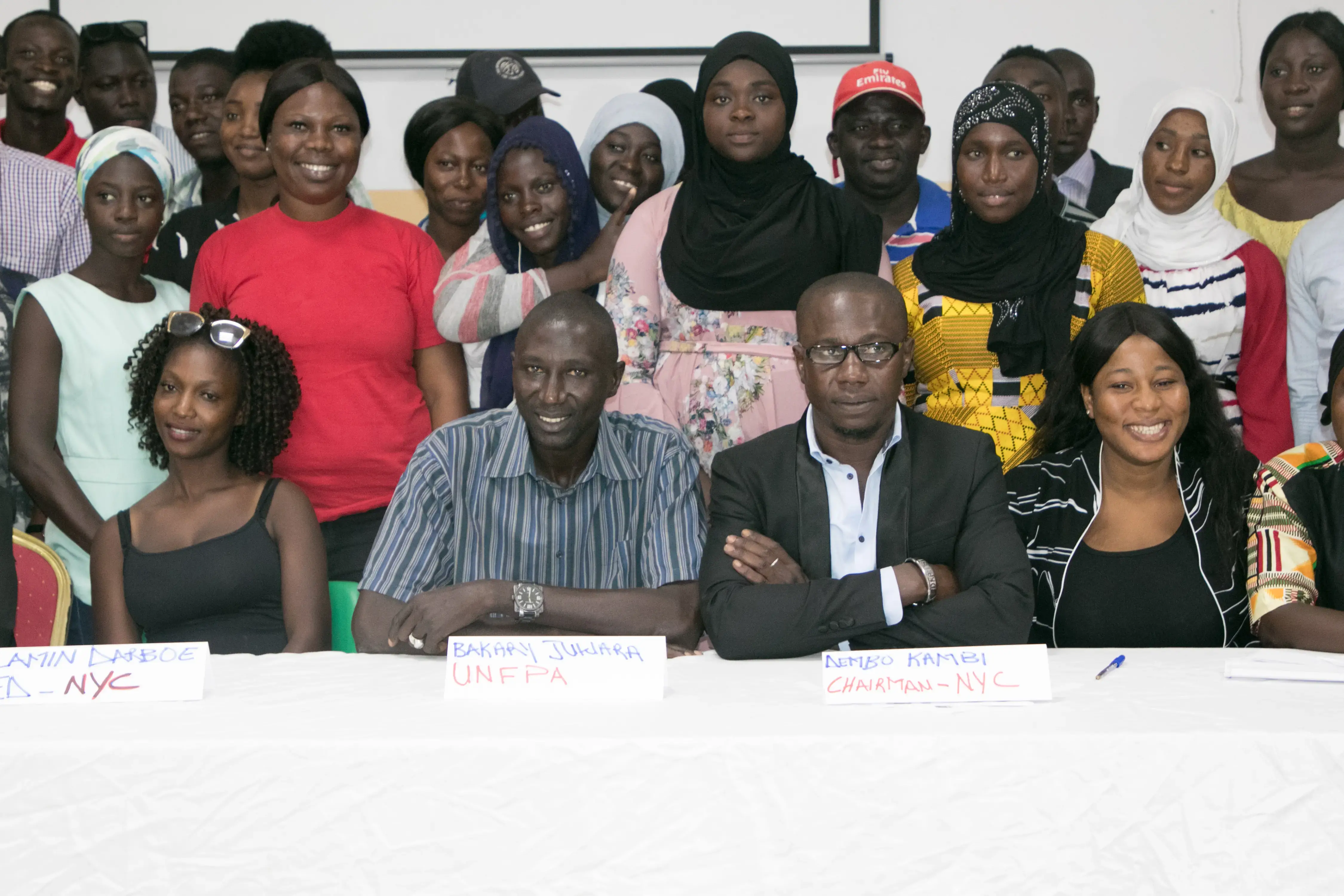To achieve a Fistula-free Gambia, we must involve midwives and nurses. They are an important component of the health system and play a crucial role in the prevention of obstetric fistula by improving a woman's chances of a healthy pregnancy and safe birth. Nurses and midwives are trained to provide a continuum of comprehensive sexual, reproductive, maternal, newborn, and adolescent health care services throughout a person’s life. Thus, they contribute towards empowering women and building equitable, inclusive, and sustainable societies.
On 31st May 2022, as part of activities marking a month-long campaign to end Obstetric Fistula in The Gambia, students at the Gambia College’s School of Nursing and Midwifery were engaged on the role of nurses and midwives in ending fistula.

Speaking to the student nurses and midwives, UNFPA The Gambia Country Representative Ms. Ndeye Rose Sarr highlighted that, the role of nurses and midwives in eliminating fistula is substantial. This she said, goes beyond safe births and family planning and includes contributing to the prevention and management of HIV/AIDS, delivering adolescent-friendly Sexual and Reproductive Health Services and participating in the health sector response to Gender-Based Violence (GBV). “Some of the causes of Fistula can be linked to GBV such as FGM, and Child Marriage. Therefore, to eliminate Fistula, we must tackle the root causes of gender inequality and work for women’s social and economic empowerment” she added.
Ms. Sarr urged the students to prioritise discussing Fistula with women and their communities during their community service modules and to leverage health talks during ante-natal and post-natal clinics upon their final enrollment at the end of their studies, to raise public awareness on the condition.

According to Muna Sillameh, a final year student nurse at the school, as trainee health care workers, they have an opportunity to contribute towards ending Fistula. “We must take advantage of the exposure our profession will avail us, to ensure that no woman lives with Obstetric Fistula and where this already exists, we can support them to access proper care and treatment” she said.
In order to support the training of nurses and midwives in The Gambia, UNFPA continues to provide teaching and learning materials, furniture and technical assistance to the School of Nursing and Midwifery as part of the agency’s commitment to enhance the human resources capacity of the health sector.
***
Media contact: Haddy Jonga – Programme Analyst, Communications jonga@unfpa.org



